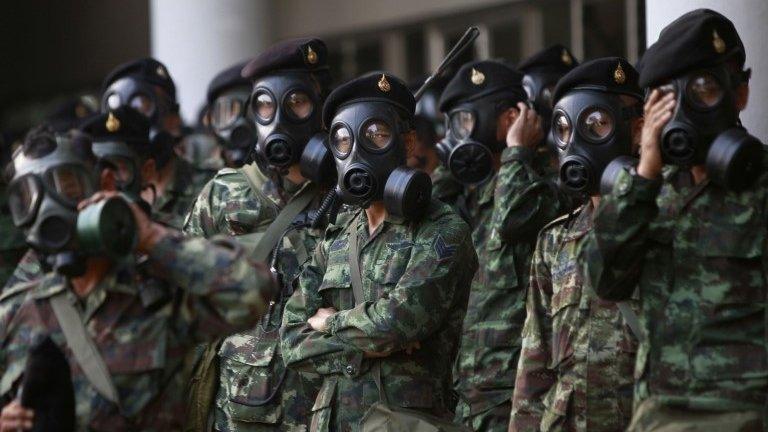Thailand imposes state of emergency over unrest
- Published
The BBC's Jonathan Head: "I'm not quite sure how the government might use its powers"
The Thai government has imposed a 60-day state of emergency in the capital, Bangkok, and the surrounding provinces, from Wednesday, to cope with unrest.
The decree gives the government wide-ranging powers to deal with disorder.
Anti-government protesters have been blocking parts of the capital to try to force PM Yingluck Shinawatra to resign.
They accuse the government of being run by exiled former leader Thaksin Shinawatra, the brother of the current prime minister.
Ms Yingluck has refused to resign and has called an election on 2 February to pacify the protesters.
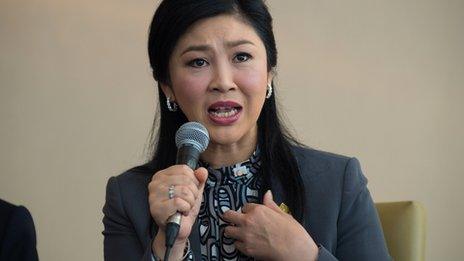
Protesters have been waging a campaign to oust PM Yingluck Shinawatra
The state of emergency was announced after a cabinet meeting on Tuesday and comes after a spate of attacks with explosives and firearms on the anti-government protesters blockading central Bangkok for which the government and the protesters blame each other.
On Sunday, 28 people were injured when grenades were thrown at one of several protest sites set up at major road sections in the city.
"The cabinet decided to invoke the emergency decree to take care of the situation and to enforce the law," Deputy Prime Minister Surapong Tovichakchaikul said.
The emergency decree gives the government power to censor the media, ban public gatherings and detain suspects without charge.
It also allows for curfews and for parts of Bangkok to be declared off-limits.
The Thai government has been contemplating a state of emergency for weeks, but in practice, it is not clear how many of those powers it will be able to use, says the BBC's Jonathan Head in Bangkok.
Emergency rule is supposed to be administered by the police and the army, but the police have until now been told to avoid any confrontation with the protesters, and military commanders have made it clear they do not want to be drawn into the increasingly bitter conflict between the government and its opponents, our correspondent says.
Ms Yingluck said the police, not the military, would mainly be used to maintain control under the decree.
"We will use peaceful negotiations with the protesters in line with international standards... We have told the police to stick with international standards, to be patient with the protesters," she told reporters.
Labour Minister Chalerm Yubamrung, who will oversee the decree's implementation, said Thailand would abide by international standards.
"We will not use force. We have no policy to disperse them [the protesters] and we haven't announced a curfew yet," he said.
'Come and get us'
Addressing supporters in Bangkok, the leader of the protesters, Suthep Thaugsuban, questioned whether the state of emergency was justified.
"Is it right for them to use the emergency decree to declare a state of emergency to come and deal with us? Come and get us. We are not afraid of you."
The decree extends past the date of the general election next month.
The official election commission has already expressed doubt over whether conditions are peaceful enough for the vote to go ahead.
Imposing emergency rule casts yet more doubt over the poll - yet the government, which is now acting in a caretaker capacity, insists there is no legal alternative, our correspondent adds.
The government says that as the Thai parliament has already been dissolved, only a new parliament can choose the next administration.
The demonstrators have been rallying in the streets of Bangkok for months.
They want an unelected "people's council" to run the country until Thailand's political system is changed.
- Published19 January 2014
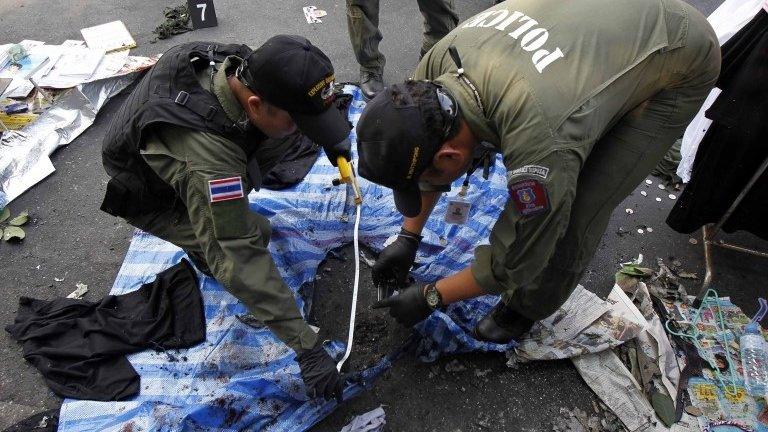
- Published22 May 2014
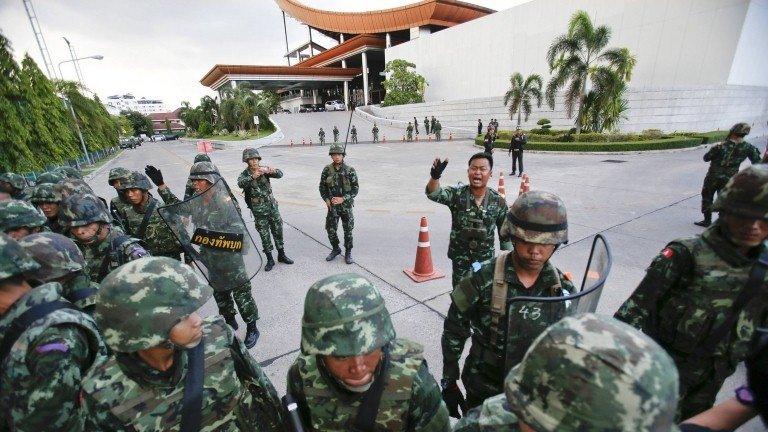
- Published13 January 2014
- Published23 August 2017
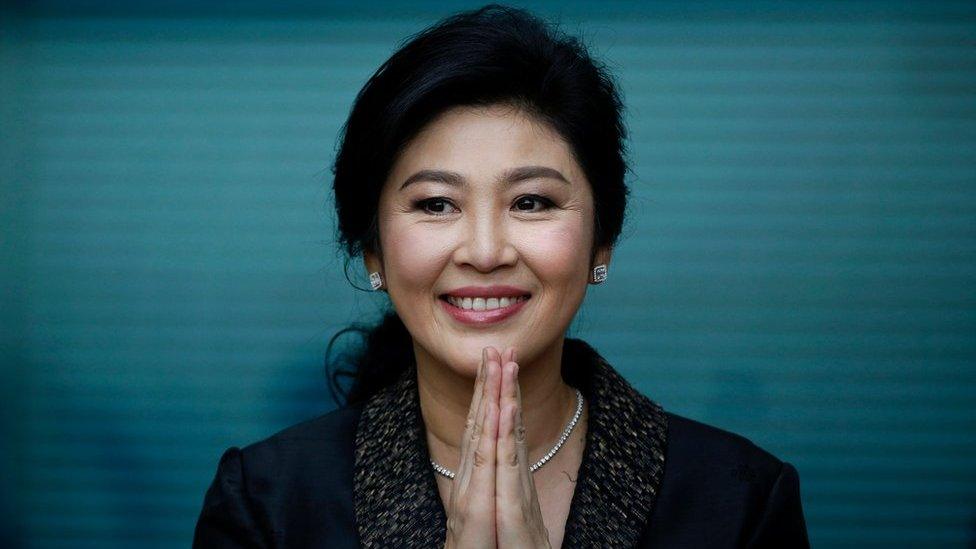
- Published8 January 2014
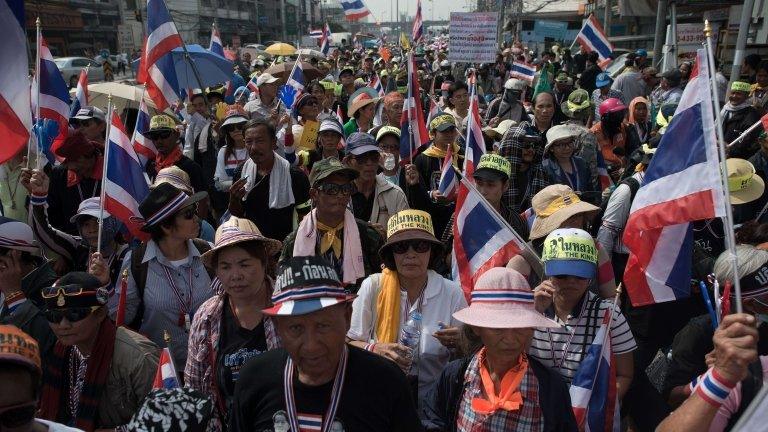
- Published27 December 2013
